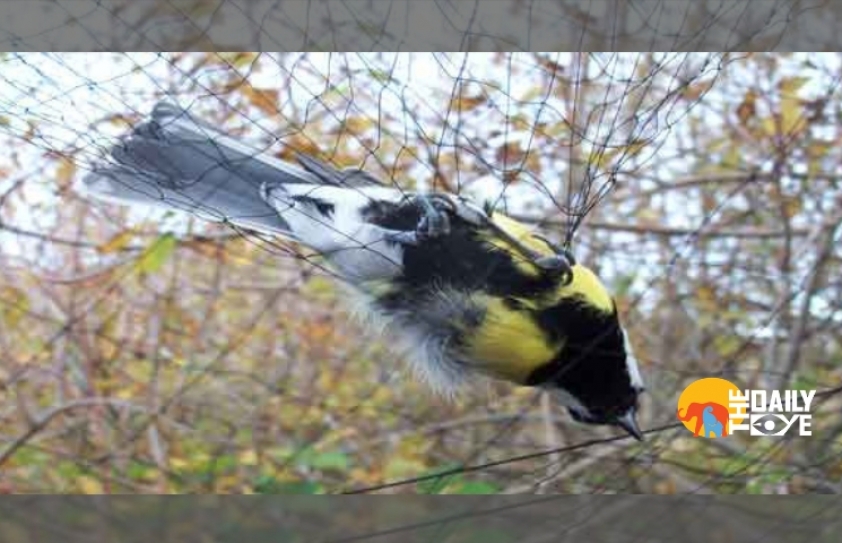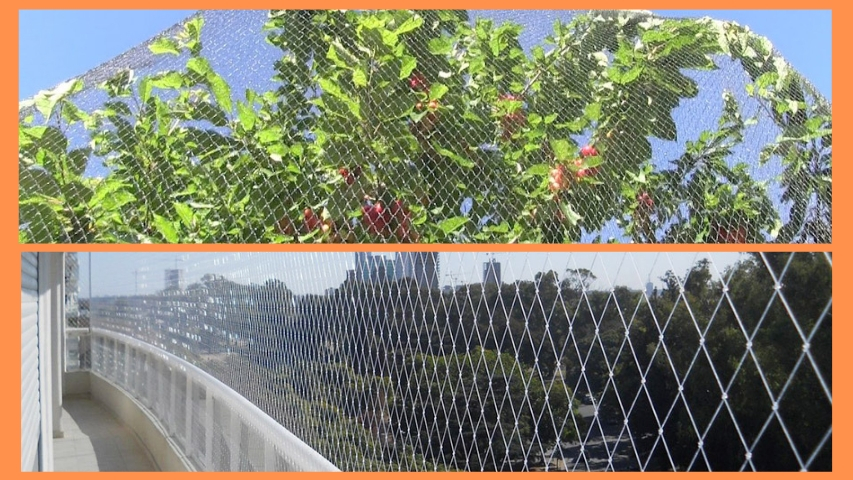
Netting to stop bird nesting is nasty and against nature
by Shruthi Venkatesh April 2 2019, 12:01 pm Estimated Reading Time: 2 mins, 38 secsBird netting or anti-bird netting is a form of bird pest control. It is a net used to prevent birds from reaching certain areas. The Royal Society for the Protection of Birds (RSPB) in the UK is urging the public to sign a petition to help change the law on the practice of bird netting. The agency is concerned by the recent reports of widespread use of netting on trees, hedges and bushes to prevent birds nesting. Developers have said it is “standard practice”.
The petition has so far gathered over 170,000 signatures which will result in netting made illegal. “We cannot keep trying to squeeze nature into smaller and smaller spaces or demanding it fits in with our plans,” it says. “People around the country are dismayed to hear about cases where birds returning from long journeys are being deliberately excluded from sites where they might choose to raise their young” – the petition read.

Netting done on trees and buildings to prevent birds from nesting
Bird protection netting comes in a variety of shapes and forms, the most common is a small mesh (1 or 2 cm squares) either extruded and bi-oriented polypropylene or woven polyethylene. The colour most used is black, but also bird netting may be available in other colours like white or green. Professional anti-bird netting comes in jumbo rolls that will offer considerable savings to the farmers or aqua culturalist. Retail chains and local stores will offer smaller packages that fit the backyard gardener´s needs. They are used for crop protection, fish protection, building protection and also in mining ponds. Bird netting is also used widely in vineyards in various types like the extruded netting, knitted netting, knotted netting and industrial-strength netting
A report in The Guardian said, ‘Tesco destroyed a successful swallow breeding site in the eaves above a trolley park in Norwich after complaints from customers about bird droppings. The supermarket washed the nests away with power hoses, and then pest-control workers fitted extensive netting, making the birds’ summer home for many years completely inaccessible’.
This was disastrous for a species that has faced declines of between 20% and 50% across Europe since the 1970s. This life-and-death situation led to a campaign to get Tesco to restore the nesting sites. Local conservationist Chris Skinner had commended the branch on working around the swallows in previous years. However, it transpired that the supermarket had become increasingly concerned about health and safety because of bird droppings falling on to the trolleys.
But the incident in the Tesco trolley park is not an isolated one. Netting nature is a nasty trend that puts money and convenience above all else. Kate Blincoe writes for The Guardian, “Amid the global environmental problems of plastic pollution and climate change, there is something so tangible about being able to make a difference on a local scale. Using nets to prevent the new life of springtime is so vile and pernicious that it has become a symbol of all we are getting wrong for nature: a nest behind mesh.”




-173X130.jpg)
-173X130.jpg)
-173X130.jpg)
-173X130.jpg)
-173X130.jpg)
_(1)-173X130.jpg)

-173X130.jpg)